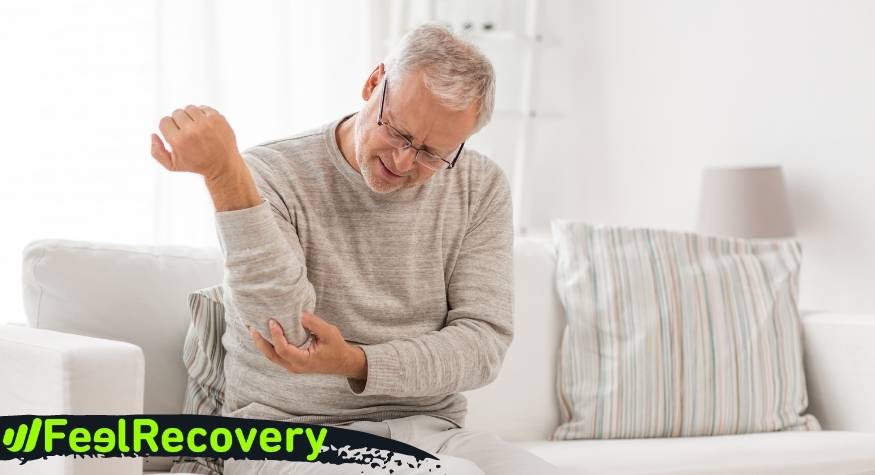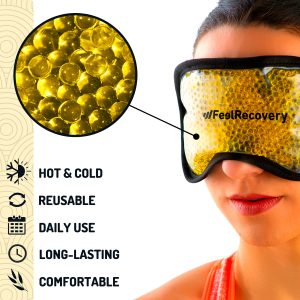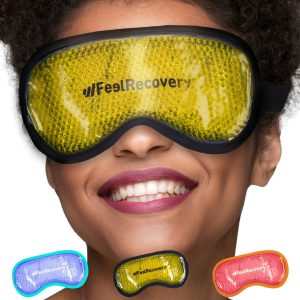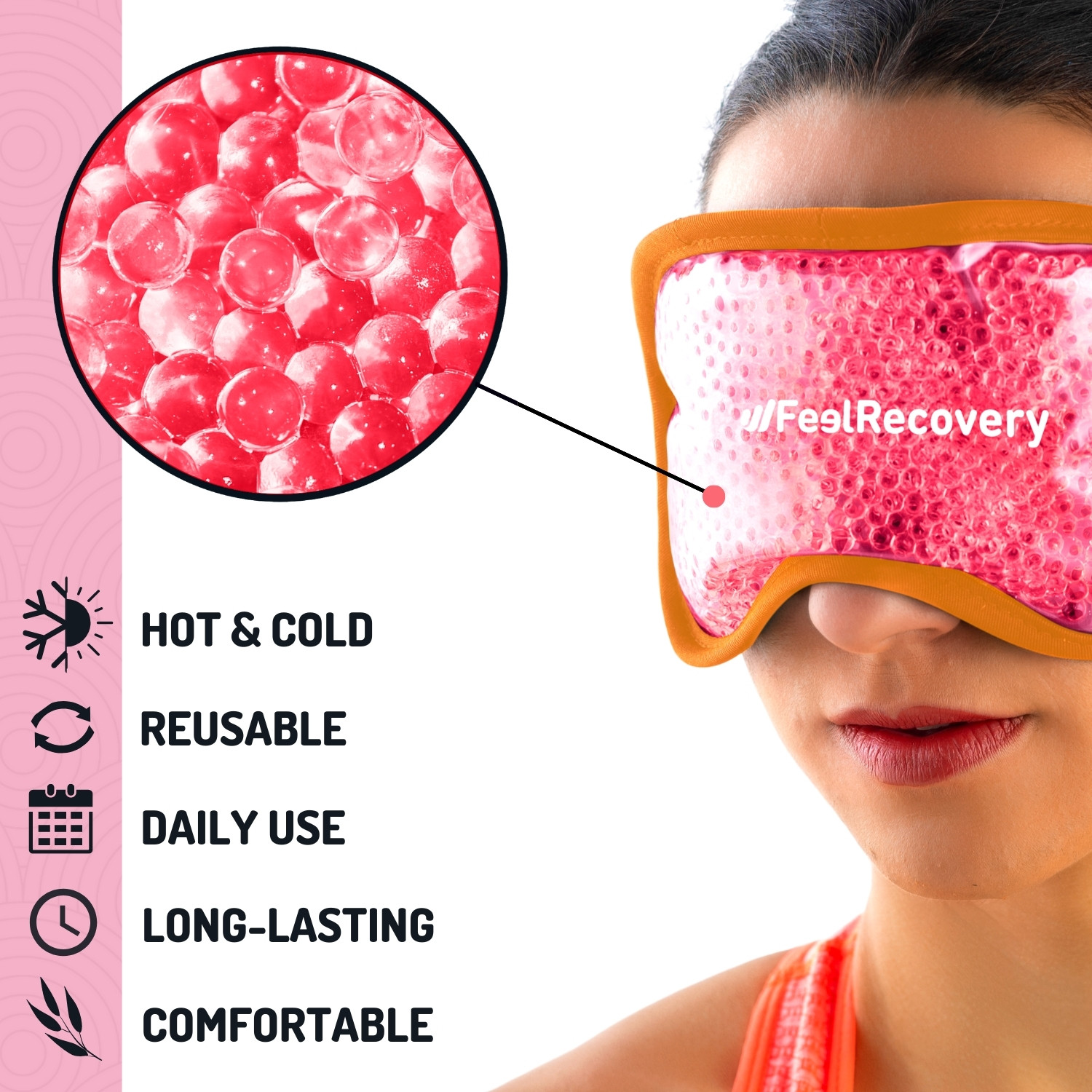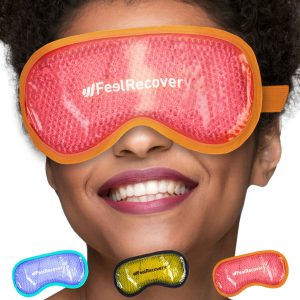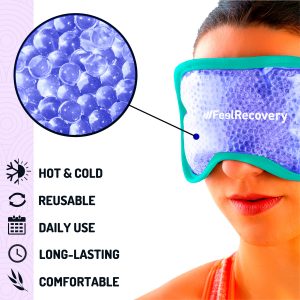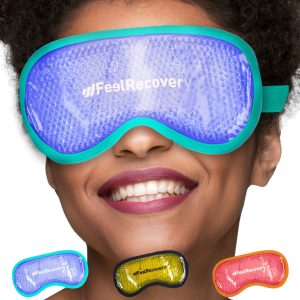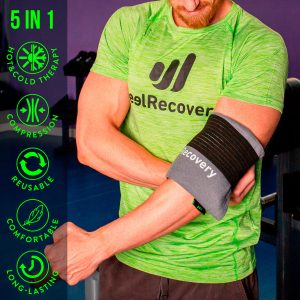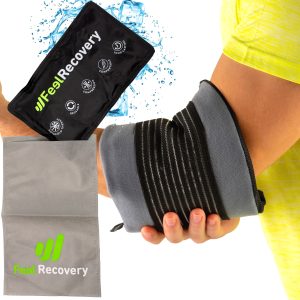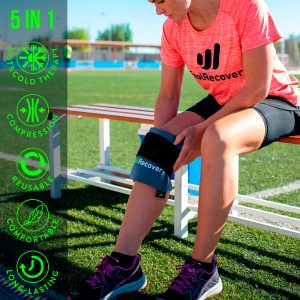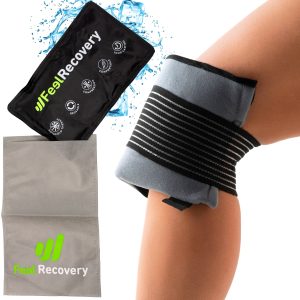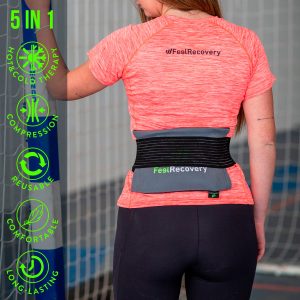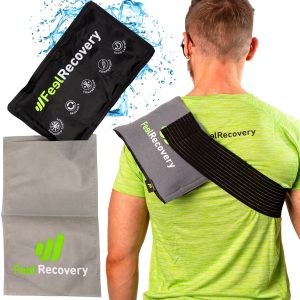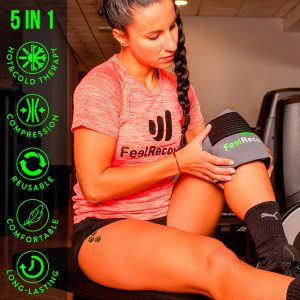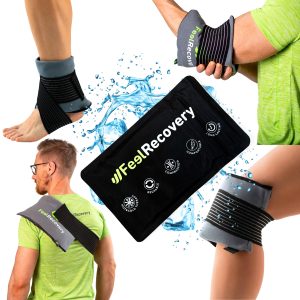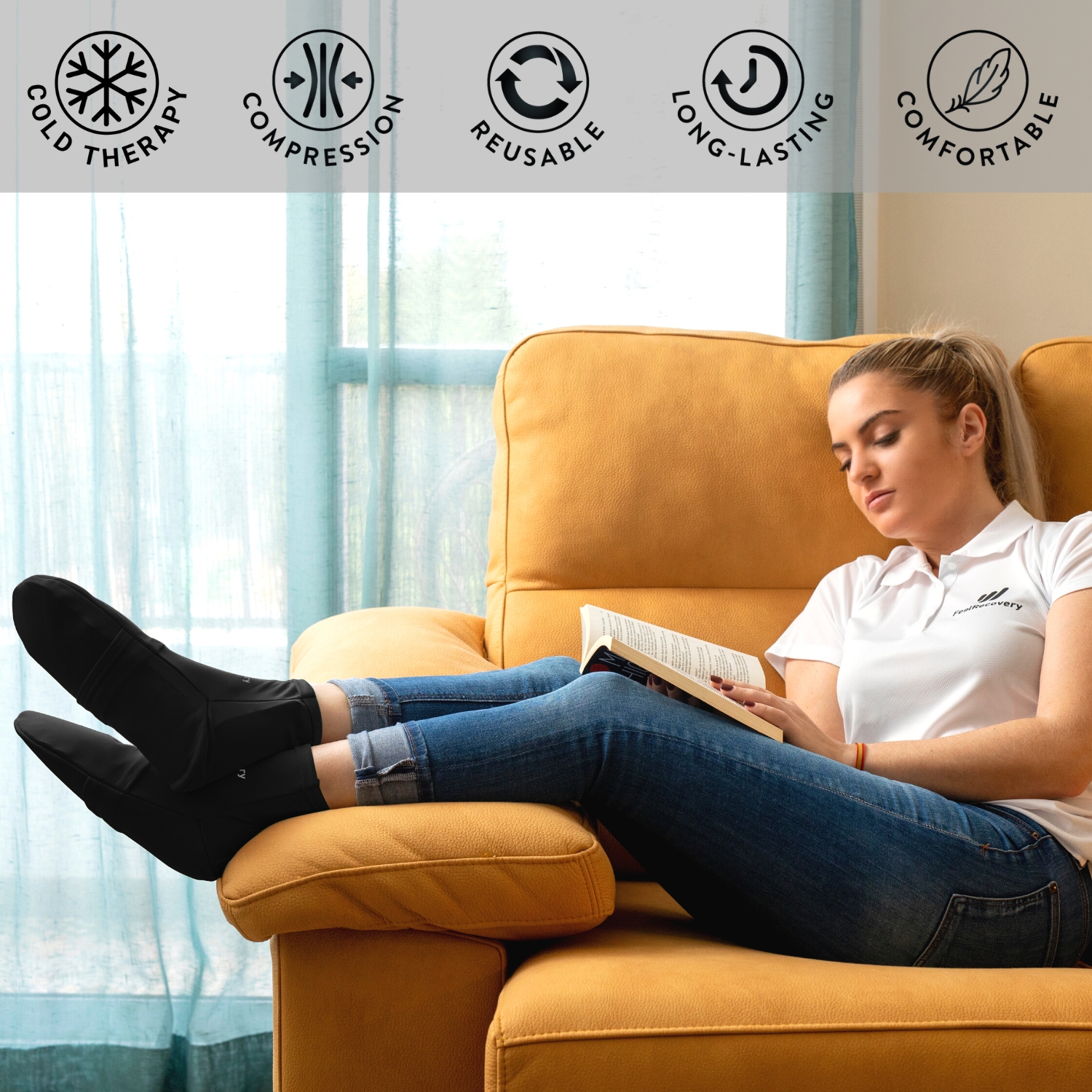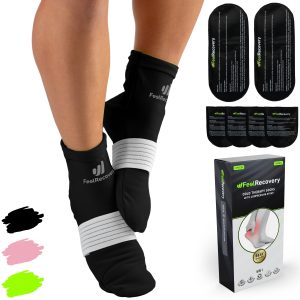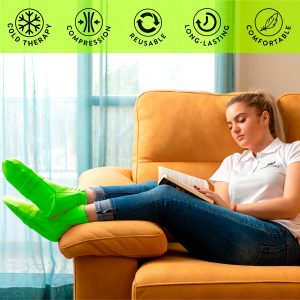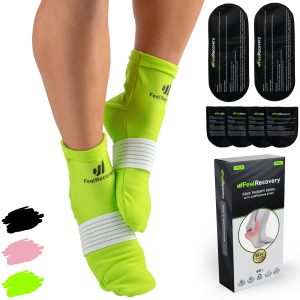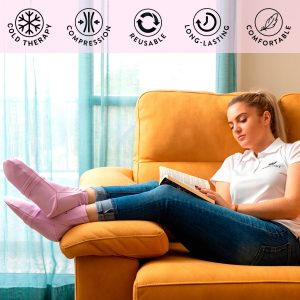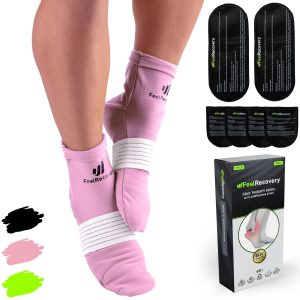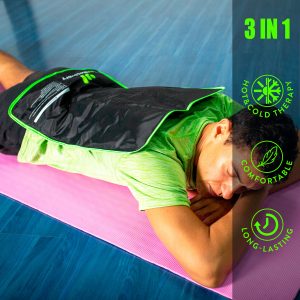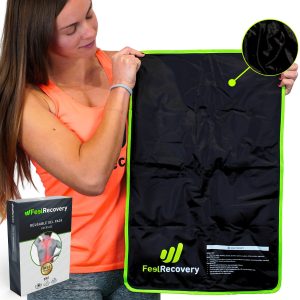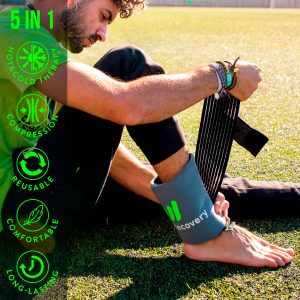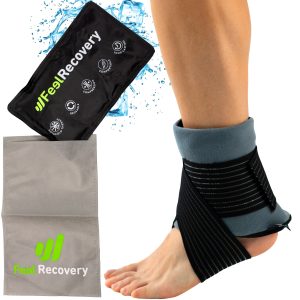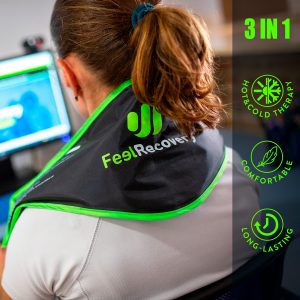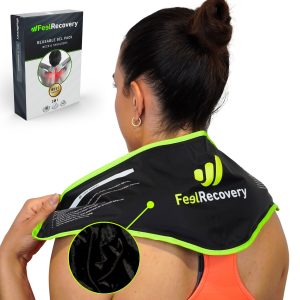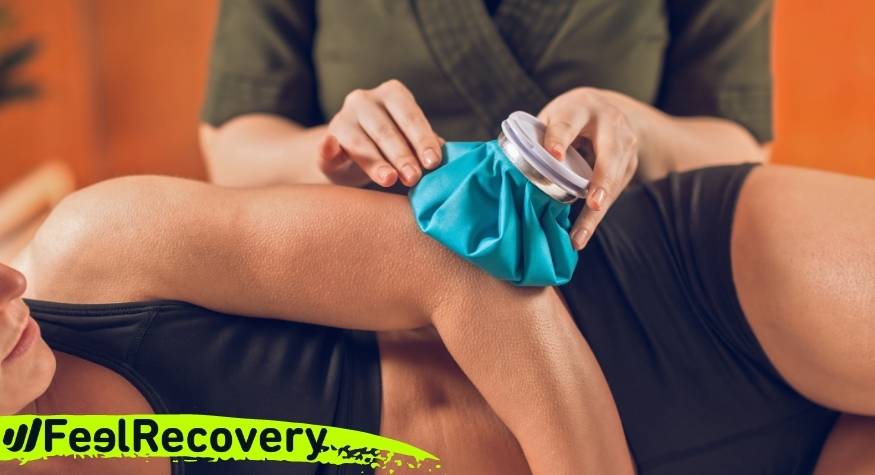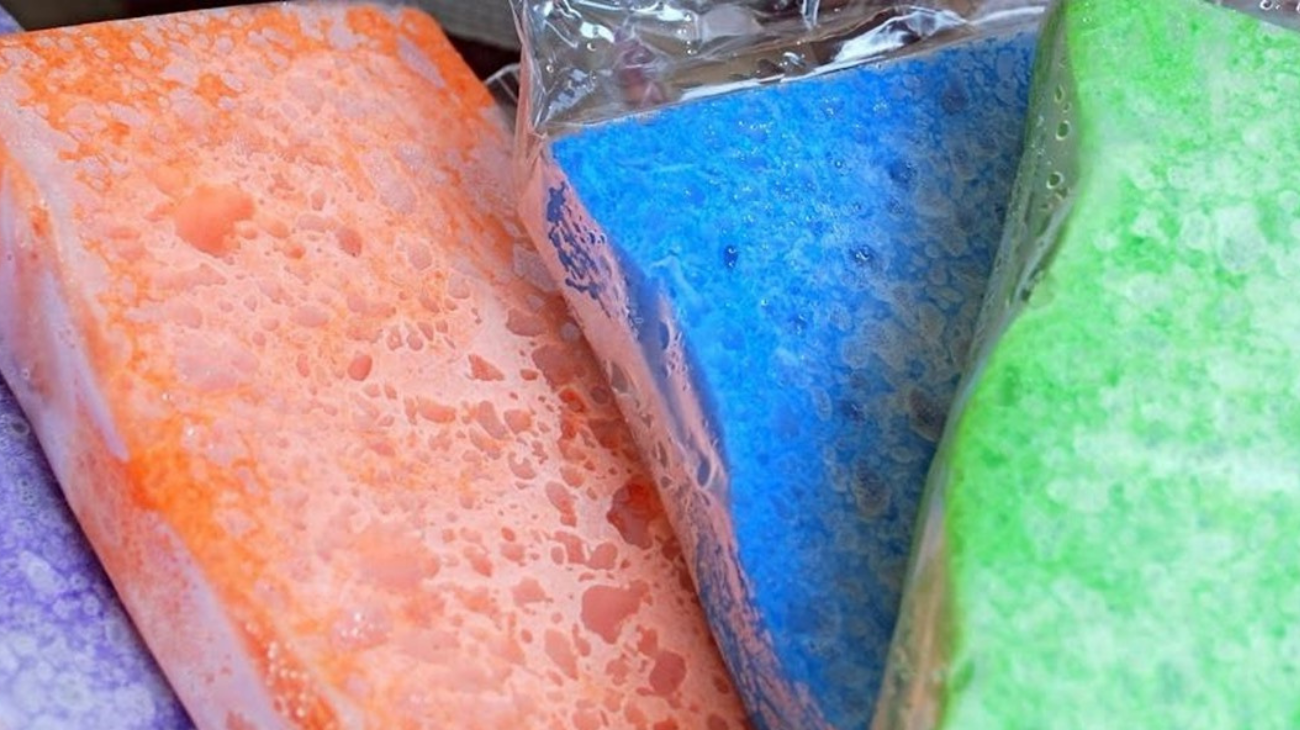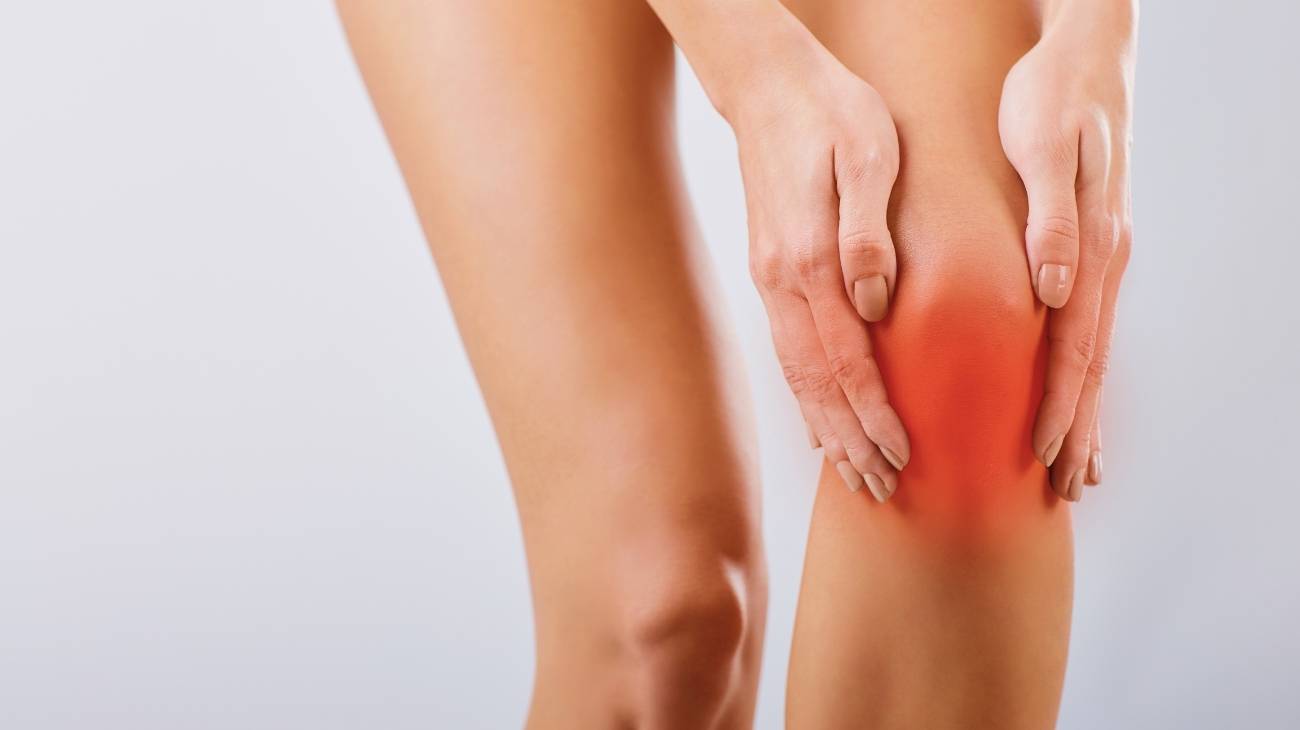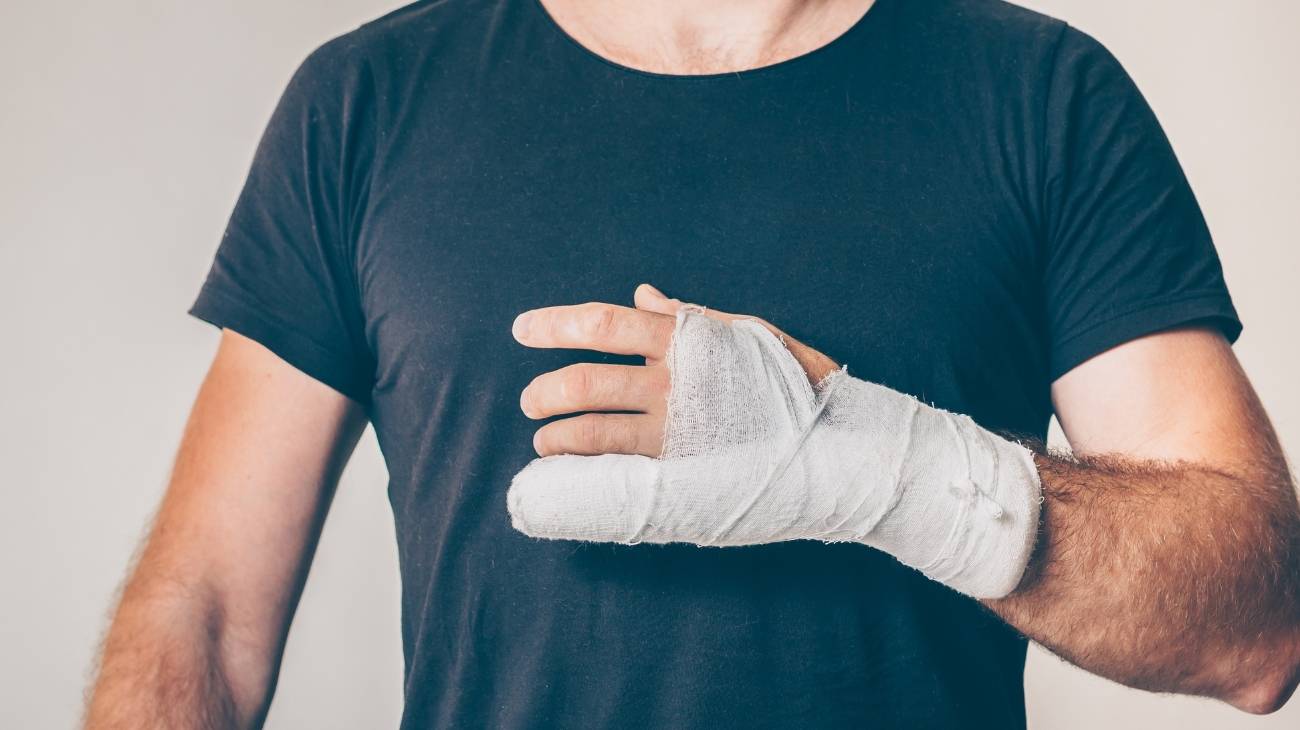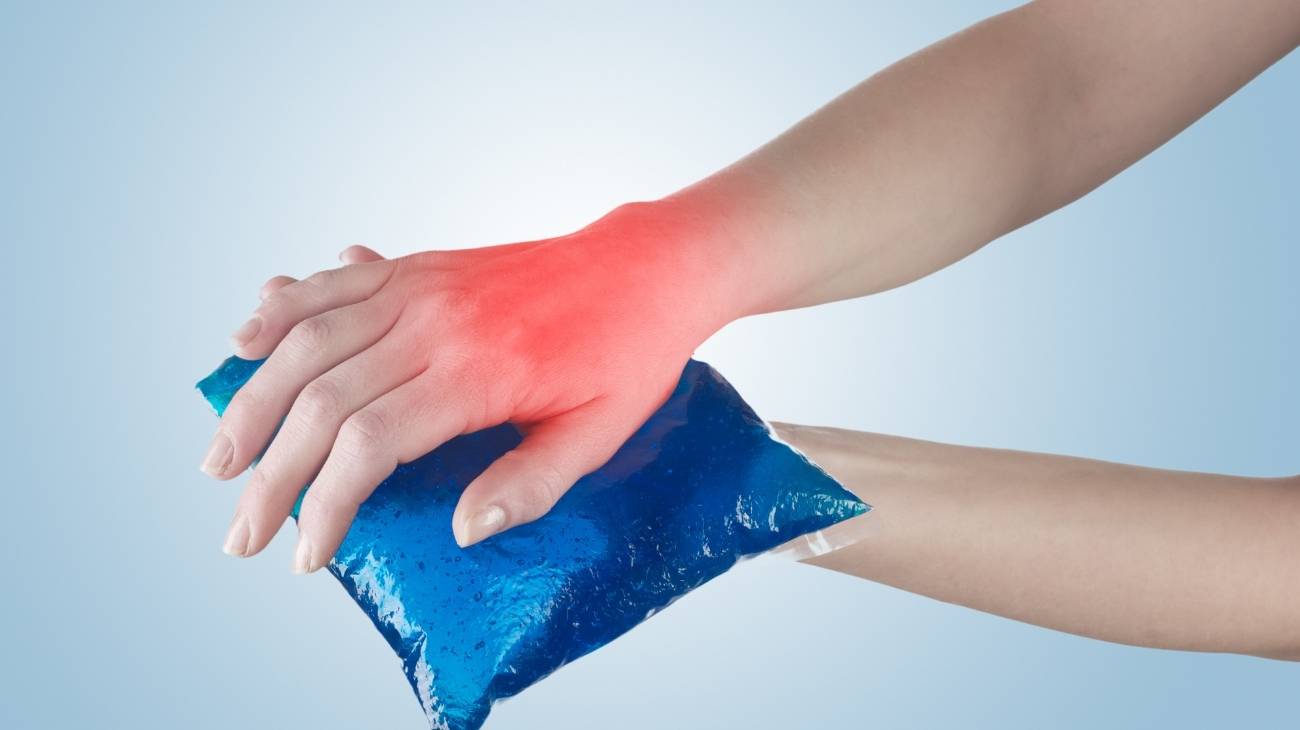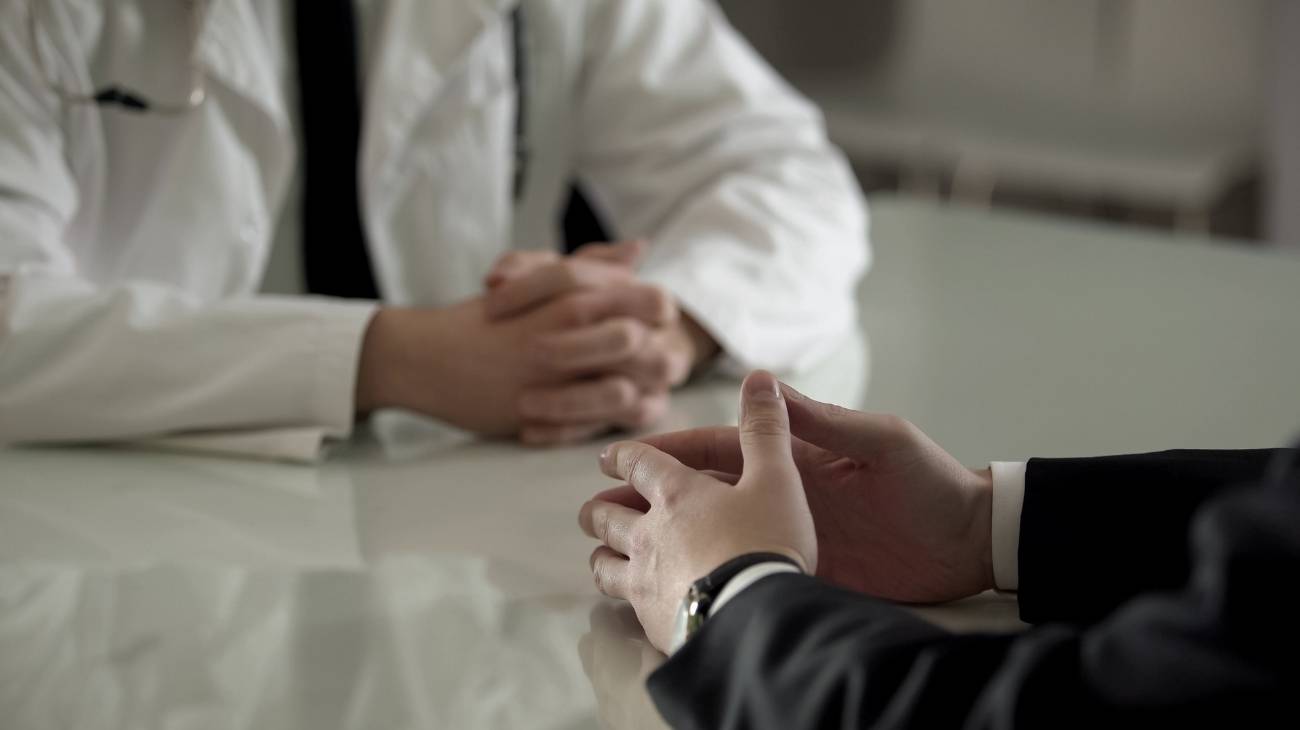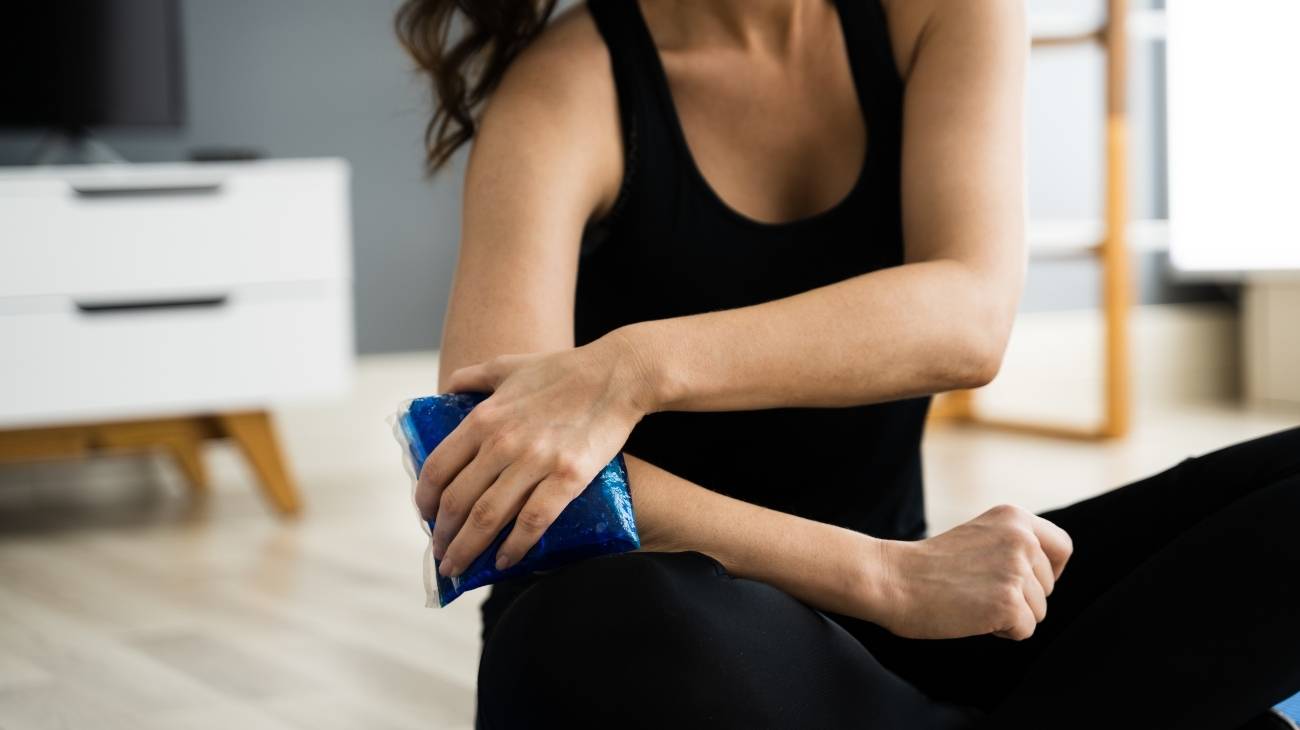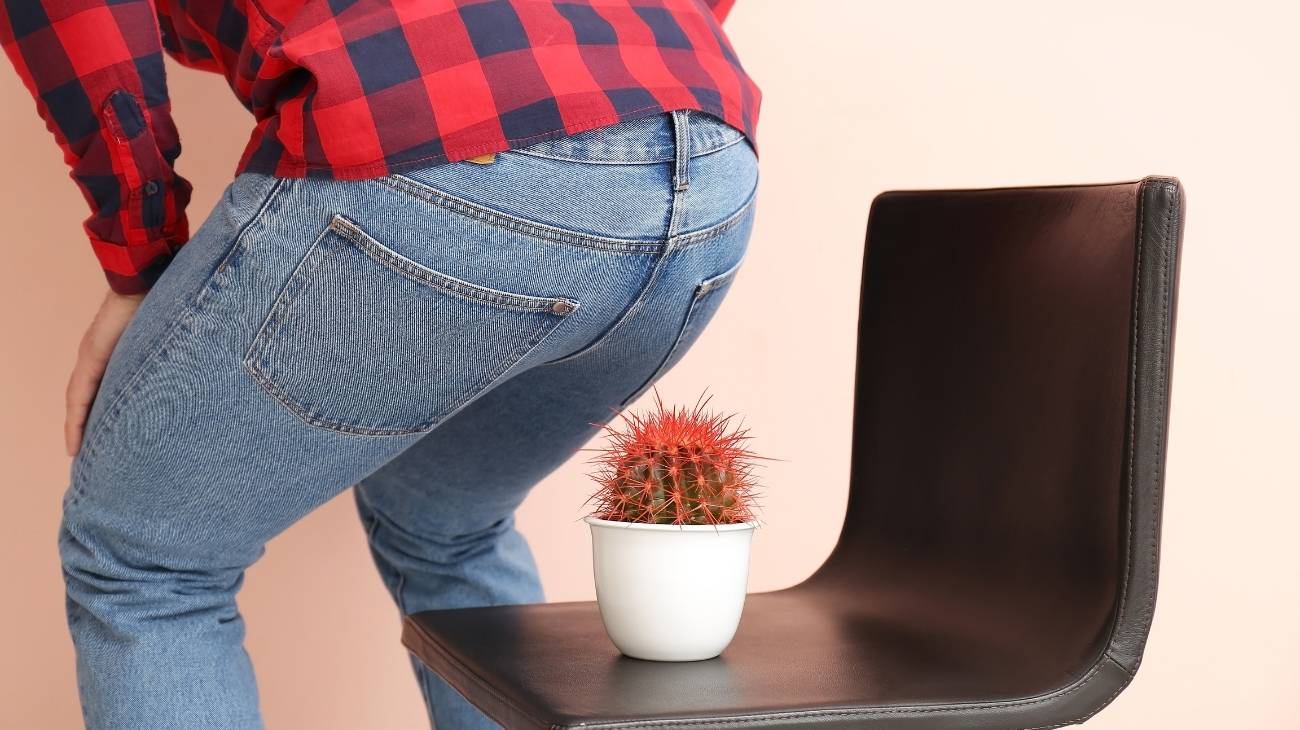Tennis or golf elbow is a disorder that is generated by frequent and continuous hyperflexion of the elbow, causing it to stretch more than normal. It is characterised by pain on the inner side of the elbow, extending progressively to the part of the wrist closest to the little finger.
Hence the purpose of this post, to talk to you about how to use hot and cold gel packs to relieve tennis or golf elbow pain. Also, we will talk to you about the origin of these ailments and how to treat them properly.
What are the causes and origin of elbow pain in tennis players, golfers and racquet players?
Tennis elbow, also known as lateral epicondylitis, and golfer's elbow, also known as epitrochleitis, are very similar injuries. They are caused by repeated traction micro-traumatisms at the lower end of the humerus. They are caused by frequent and continuous movements that progressively stress or overload the elbow.
- Lateral epicondylitis affects the extensor musculature of the hand and wrist which is inserted into the epicondyle, causing pain in the lateral area of the elbow.
- Meanwhile, epitrochleitis affects the flexor muscles of the hand and wrist that are inserted into the epithelium. Consequently, pain is generated in the inner elbow area.
In both cases, the pain progressively spreads to the arm or forearm, especially when performing very everyday movements. Some of them, opening a bottle, lifting an object, carrying a shopping bag, among others. When it becomes chronic it could even prevent you from sleeping.
Tennis elbow is common in patients who practice racket sports. They perform extension and rotation movements involving hand and wrist (especially when doing the backhand stroke) which could generate an overload on the epicondyle muscles.
On the other hand, epitrocleitis is common in people who play golf. By performing the so-called swing incorrectly, you could force the flexor muscles of the elbow too much.
However, tennis elbow and golfer's elbow are not exclusive to those who play tennis or golf. It also affects those who practice other sports such as baseball, weightlifting, shot put and javelin, among others. It can also affect bricklayers, carpenters, painters, computer users, among others.
In summary, the main causes of elbow pain in tennis players, golfers and racquetball players are:
- Work, sports or recreational activities that involve excessive use, tension or damage to the epicondyle or epithelium.
- Not using the correct technique when playing sports such as tennis, golf, baseball, among other racket sports.
- Lifting weight or using sports equipment that is not suitable for the level of the athlete.
- Poor posture when practising sports or carrying out work activities such as using a computer, especially on laptops.
- Lack of warm-up and stretching when doing a sport or physical activity.
- Tension of the soft tissues of the elbow or nearby generated by anomaly (such as legs of different lengths) or incorrect positioning of bones or joints.
- Diseases or conditions such as arthritis, osteoarthritis, gout, psoriasis, thyroid, among others.
- Repeated and frequent movements generated by the excessive use of the mobile phone.
- Among other causes are infections, stress and insomnia.
Bestseller
What is best for reducing elbow pain in tennis players and golfers, hot or cold?
Once a patient has been diagnosed with tennis or golf elbow, treatment may vary depending on the severity of the injury. Hence, the importance of consulting with a medical specialist or physiotherapist who will indicate the respective and timely treatment according to the type of damage existing in the injury.
In any case, it is very important to identify the cause of the problem and avoid it if possible. However, abstaining from the activity that has caused the illness will not be enough, so certain measures must be taken.
Generally, these traumas are treated by placing a strap on the forearm, slightly below the elbow. This can reduce the traction force exerted on the epicondyle or epithelium. This allows the inflammation and pain associated with the injury to be reduced.
Physiotherapy specialists also apply massages or techniques such as electrotherapy, shock waves and infiltrations. Although, from home it is possible to perform self-massage and stretching. Similarly, many physiotherapists recommend thermotherapy and cryotherapy to treat lateral epicondylitis and epitrochleitis. An excellent option is gel packs for cold and heat.
Below, I will explain the main benefits of high and low temperatures to treat tennis and golf elbow:
Benefits of applying cold
In the field of sport it is very common to use cold for therapeutic purposes (cryotherapy). This is because applying low temperatures to an injury such as tennis or golf elbow has the following benefits:
- Anti-inflammatory: The cold helps to reduce the inflammation caused by lateral epicondylitis and epitrochleitis. This is because low temperatures cause a decrease in vasoactive substances. This reduces the body's inflammatory response and decreases oedema or swelling.
- Analgesic: Applying cold reduces the pain associated with tennis or golf elbow. This is because low temperatures interrupt the transmission of nerve impulses associated with the sensation of pain.
- Vasoconstriction: The cold causes the constriction of the blood vessels. This reduces blood flow, helping to reduce bruising and bleeding.
Benefits of applying heat
Applying heat for therapeutic purposes (thermotherapy) is undoubtedly one of the most widely used techniques for treating various injuries to the locomotive system. Such is the case of tennis or golf elbow, which can be treated by applying high temperatures. The following benefits are obtained as a result:
- Vasodilation: Heat generates the dilation of the blood vessels favouring the flow of blood in the treated area. This helps in the nutrition of the tissue and promotes the elimination of toxins.
- Fast recovery: The increased circulation helps in the healing of the damaged tissue.
- Analgesic and relaxing effect: The application of heat relieves pain and tension in the muscles. This is largely due to the vasodilation caused by the high temperatures.
- Reduces joint stiffness: The heat produces a noticeable change in the physical condition of the fibrous and elastic tissues. At high temperatures these can stretch more easily which reduces stiffness in the joints.
How can hot/cold gel packs be used to reduce inflammation of the elbow due to lateral epicondylitis?
Hot and cold gel packs are very useful in the treatment of tennis or golf elbow. These gel-filled packs can reach low and high temperatures keeping them for a long time, so they are ideal for thermotherapy and cryotherapy.
We also recommend our gel packs with compression tape to treat this type of injury. These are ideal, as they manage to stay perfectly adjusted to the elbow providing greater comfort.
Use cold
The use of cold is indicated in lateral epicondylitis if the lesion is in the initial stage. That is, within the first 48 hours where there is severe pain, but of short duration.
If you want to know how to use cold/hot gel packs to reduce inflammation of the elbow due to lateral epicondylitis correctly, bear in mind these recommendations:
- Put the pack in the freezer for about 2 hours.
- Remove the pack and check the temperature.
- Freeze a little longer if necessary. But if it's too cold you can let it warm up a bit in the open air.
- Place the cold gel pack on the elbow area for 20 minutes.
- Repeat this session 3 or 4 times a day at 1 hour intervals.
- Be sure to monitor the injury every 5 minutes while the cold is on the skin to avoid damage.
- With our cold gel pads you don't need to put on cloths or towels to avoid direct contact with the skin, as they include a protective cover. However, this will depend on the manufacturer.
Use in heat
Heat is indicated after the first 48 hours, especially when there is chronic, long-term pain. Use our very simple gel compresses for heat. Just keep in mind the following recommendations:
- For microwave heating the hot/cold gel pack must be at room temperature. Just place it in an 800W microwave for approximately 30 seconds. If your microwave has a different power, you will have to carry out several tests until you find the right time.
- Remove the heat gel pack and massage to distribute the heat evenly.
- Check if it has reached the desired temperature. If you need to heat it up further, microwave it at 10 second intervals until it reaches the ideal temperature.
- To heat on the cooker, you should put 3.5 litres of water in a pot until it boils.
- Once the water has boiled, turn off the heat and put the gel pack in the pot for 7 - 8 minutes. Remove the packet carefully and check the temperature. If you want to heat more, immerse the pad in the water for 1 minute intervals until it reaches a temperature that does not cause burns.
- Place the gel pack on the elbow area for 15 - 20 minutes.
- Perform this session 3 to 4 times a day.

